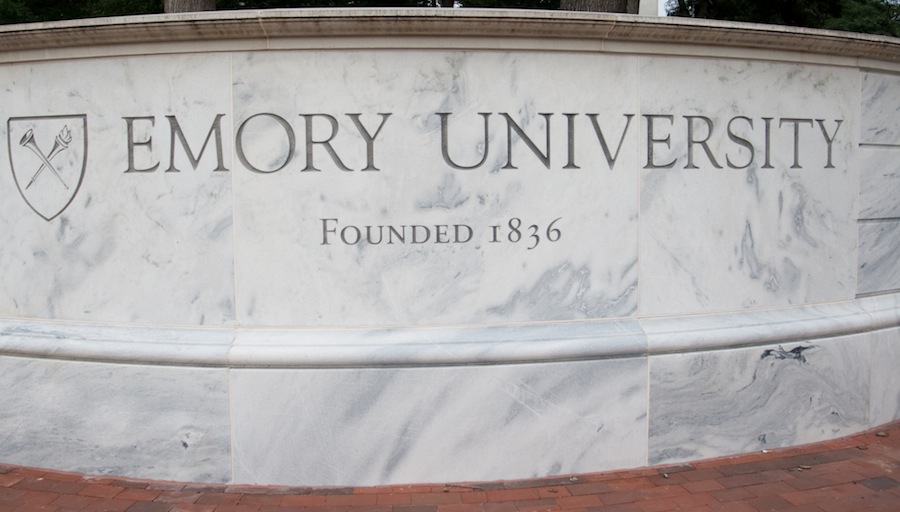
Students at Emory University protested their administration last week after discovering their campus full of pro-Donald Trump chalkings, ranging from “Trump 2016” to “Build the Wall.” It was a well-intentioned protest that was somewhat petty, woefully misguided and frightfully handled.
Though initially reluctant to condemn the chalkings — as would have been the proper course of action — University President James W. Wagner seemed to want to appease the protestors, and he eventually supported an investigation into the matter. He wrote in an email to the Emory community that “immediate refinements to certain policies and procedural deficiencies” would be made.
While he acknowledged the right to dissent in another email, his own actions are remarkably thin-skinned and empower further unsubstantiated protests.
If every school policy regulating practices like chalking, tabling and campaigning were enforced, well-qualified student government candidates wouldn’t be able to send their messages out most effectively. Student organizations would find their outreach hindered. While these rules are important, they should not be used in cases when they have the potential to significantly restrict freedom of expression.
In a university statement dropping the case last Thursday, reference was made to a specific policy at Emory that allows for the chalking of only horizontal surfaces. This does not include walls, benches or staircases — the sites of the pro-Trump slogans — because their “defacement” is considered vandalism. That Wagner supported enforcing such a policy is a de facto prosecution of expression. It shows the extent to which he felt he had to do something to ward off any further trouble.
But boy, did he open up a can of worms.
Ultimately, Emory garnered so much national attention because of the innocuity of the perceived offense, and the utterly confounding response from the university.
It’s hard to imagine a simpler affirmation of a candidate than simply stating their name. That’s why politicians speak of themselves in the third person. What the protesters said about Trump — that he’s racist, xenophobic and sexist — are all true. But it’s also true that Trump is a Republican skeptical of free trade, and that policy position might have been what motivated the chalking.
Or it could be a cynic wanting to make a point about the precariousness of free speech on college campuses.
Or it could be a joke. After all, the entire GOP primary has played out like a cruel joke.
But who knows?
Though Wagner’s response to the protestors suggests otherwise, Emory has no obligation to condemn speech as potentially ambiguous as “Trump 2016.” And it’s a disservice to the progressive movement that some of its members should want to sanitize any alternate opinions.
Emory is a large university, and the 40 or so students who protested should not be considered representative of the whole. But they should realize that they do hold power, and therefore need to pick their battles more carefully. The reaction to their activism has been overwhelmingly negative, and that works right into the hands of Trump supporters, who already believe this nation is too politically correct and who are motivated by the kind of episode playing out in Emory.
The protesters took fair contention with the media narrative played against them, and especially at the perception that they were protesting mere chalkings. They argued that the Trump slogans represented more than just preference for a candidate, but rather an ideology, rooted in hate and discrimination, that ran contrary to Emory values.
Of course, that doesn’t really respond to concerns that their actions are prohibiting speech. It just changes the kind of speech from one scrawled out in chalk, to one with larger, historical consequences. The latter is certainly more interesting to talk about. The protesters should confront the bigotry that has partly helped fuel Trump’s rise not by making demands of their university, but rather of Trump and the voters.
When political slogans are given more attention than the all too frequent hate crimes that even UC Davis can’t escape, or respond to properly, it’s a sign that priorities need to be shifted.
You can reach ELI FLESCH at ekflesch@ucdavis.edu or on Twitter @eliflesch






